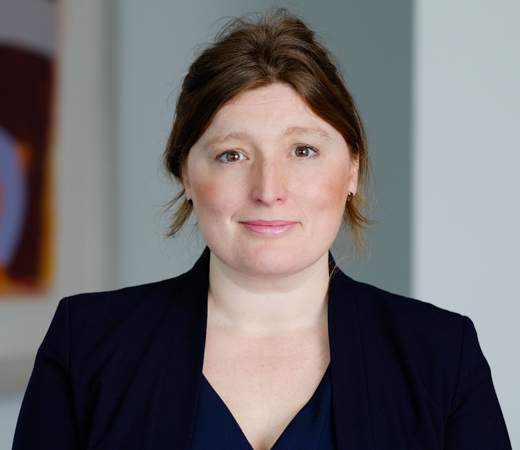Clare has been with Wedlake Bell since 2015. She advises both UK-based and international clients on tax, trusts, cross-border estate planning and succession issues. She has particular experience in advising Middle Eastern families on structuring their UK investments and other family assets (including Sharia compliant structures). Clare became a partner in April 2020.
What aspects of your career do you particularly enjoy?
Whilst I find the private client work interesting, for me the part of my job I enjoy most is the variety it brings and being able to add value. I can genuinely say that I never have one week the same as another. On Monday I might be advising a Lebanese client on how best to structure their new UK investment and the UK tax issues he needs to consider, on Wednesday I may have a meeting to discuss a client’s options to protect his wealth for his children following the sale of his business and on Friday I could get a call to say that a client is terribly ill and needs to update her Will urgently.
I think, more than ever, my role is much more than just being “a tax lawyer”. I have to be commercial, empathetic, strategic, re-assuring and generally use skills which are not just about the law.
Your practice has an international focus. What advice would you give to your international clients?
I find that many clients (including UK based families) increasingly have some international focus. For example, they might be UK nationals who are based abroad or own property abroad or they may originally be from another country, but are now living and/or working in the UK or they may simply have assets located here.
In the past few years, we have seen some of the most significant changes to the taxation of UK resident, non-domiciled clients, trusts and UK property. This, together with increasing transparency and disclosure rules has meant that international clients more than ever need to take advice on their UK tax exposure. UK tax rates are comparatively low at present, but there is increasing concern as to how long this may last given the UK’s post-Covid economic situation. Reduced prices in the property market have presented opportunities for some clients and for others deflated asset valuations have allowed them to re-structure their affairs and/or to pass assets to the next generation with fewer tax charges.
Clients (whether based abroad or with assets in other countries) should also be wary of the interaction between the tax and succession laws that would apply to them in other countries, which will often require us working alongside lawyers qualified in those jurisdictions to advise on the best way to protect their assets and give effect to their wishes in the event of death.
Tell us a bit about your experience of working from home during this time?
I have generally been surprised at how seamless the transition has been from being predominantly office based to having a fully functioning virtual office. In many respects due to the location of some of my clients, having a conference or video call with them was not unusual. For others, it has been slightly more challenging, but I think a great number of families have had to adapt to using new technologies and methods of communicating with one another during this period. Working from home definitely has some advantages: I have not missed my commute and have enjoyed spending time with my children – although I quickly came to realise that I am much more suited to being a lawyer than a school teacher!
What are you looking forward to doing once the lockdown has eased?
Going out for dinner at a restaurant and eating a meal which I haven’t had to cook!






